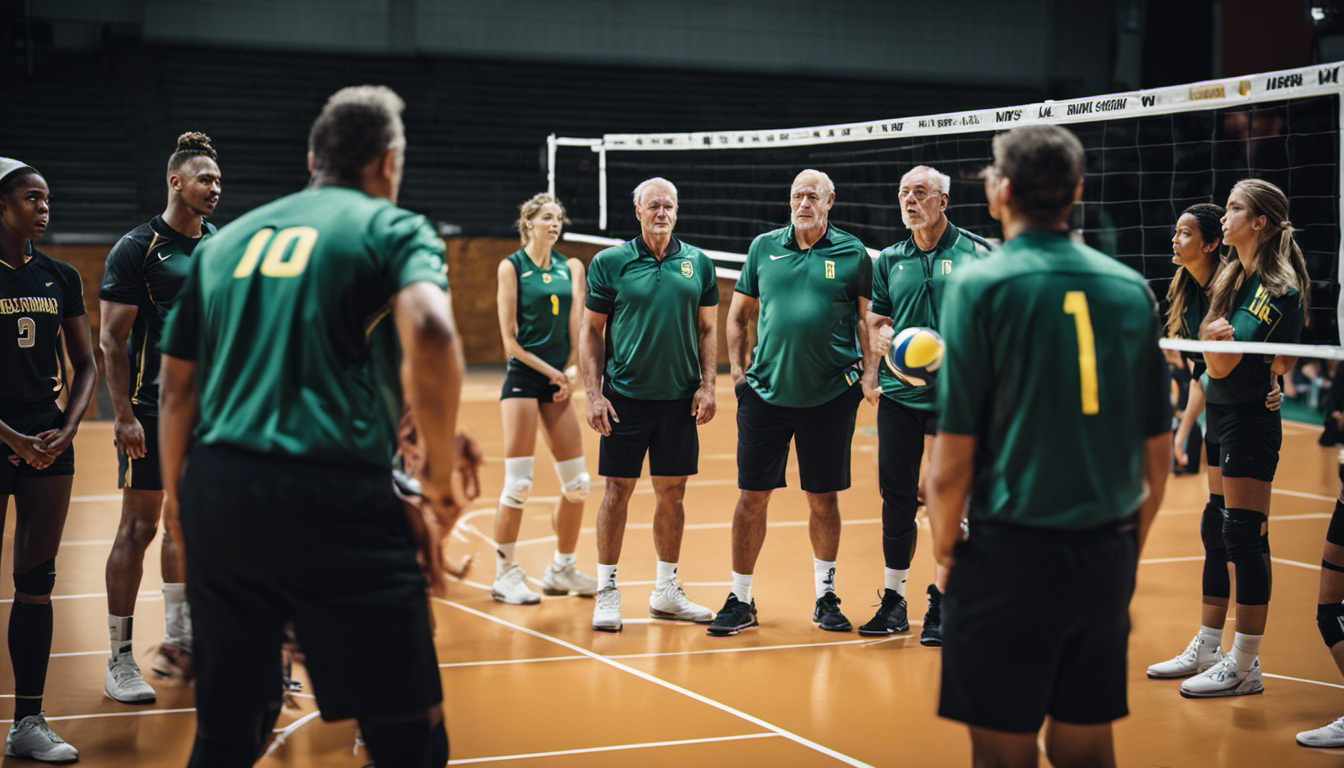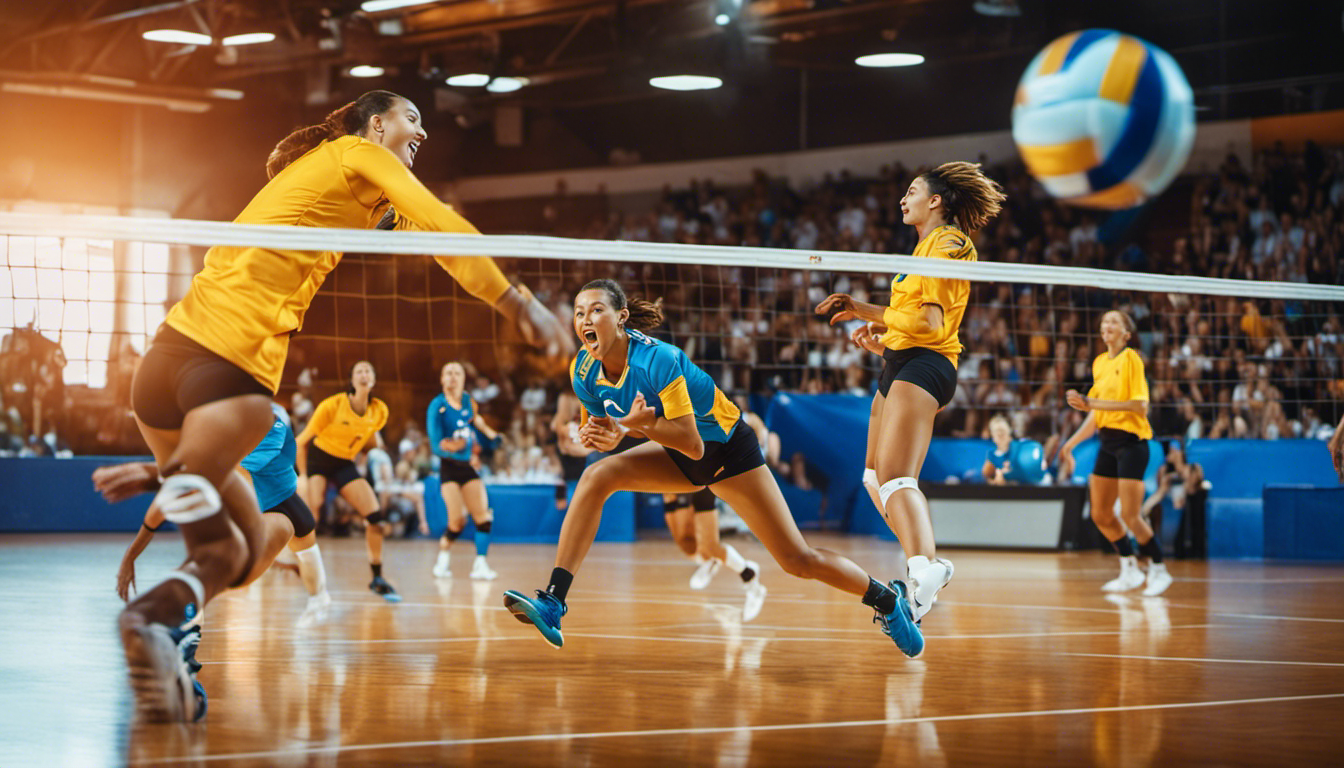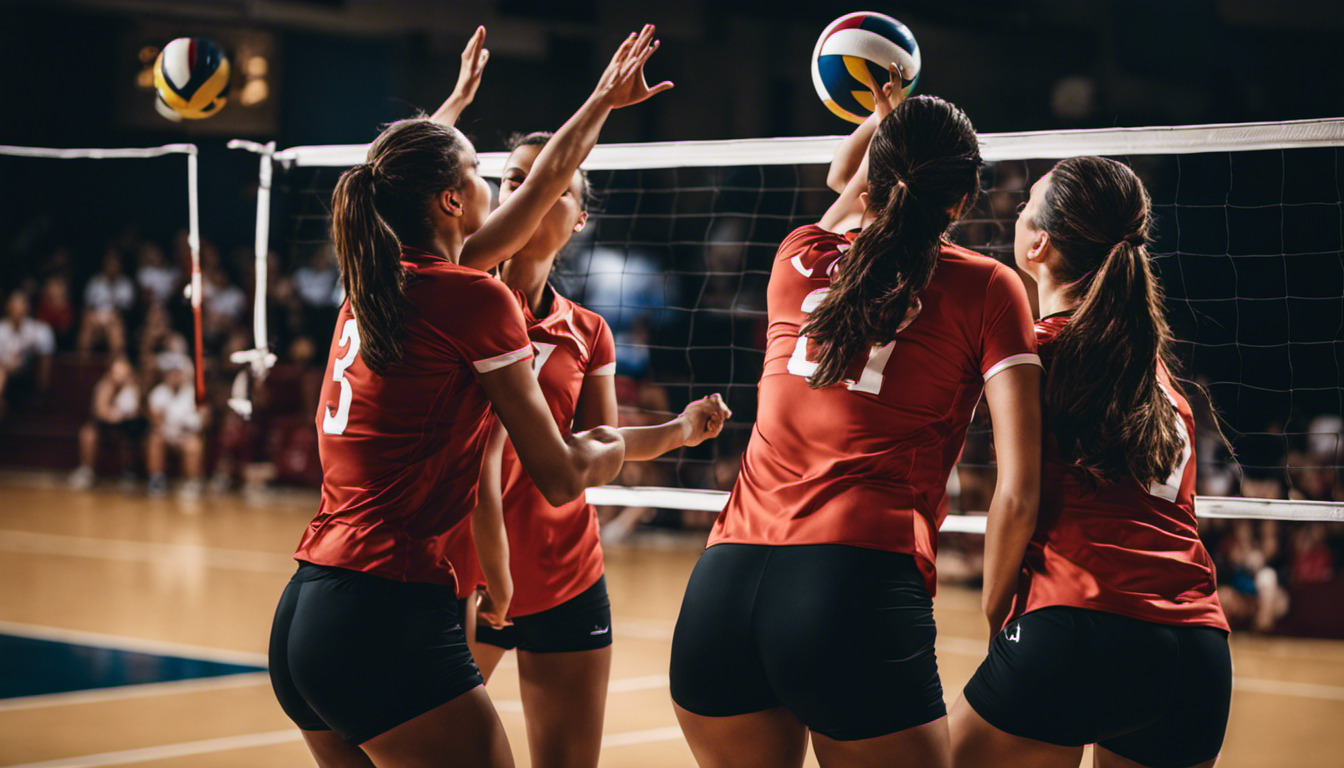As a seasoned volleyball coach, I’ve had the privilege of learning from some of the best mentors in the sport. In this article, I’ll be sharing valuable insights and coaching tips that I’ve gathered throughout my career.
From setting solid foundations to developing essential skills, creating effective game plans, fostering team dynamics, and unlocking the power of mental training – we’ll cover it all.
Together, let’s explore how these strategies can help you become a successful volleyball coach.
Key Takeaways
- Develop a strong coaching philosophy and communicate it effectively.
- Focus on skill development and technique improvement through repetitive drills and video analysis.
- Utilize tactical approaches and game strategies based on analyzing team strengths and weaknesses.
- Foster team building and communication through regular team activities and addressing conflicts openly.
Setting the Foundation: Key Principles for Effective Coaching
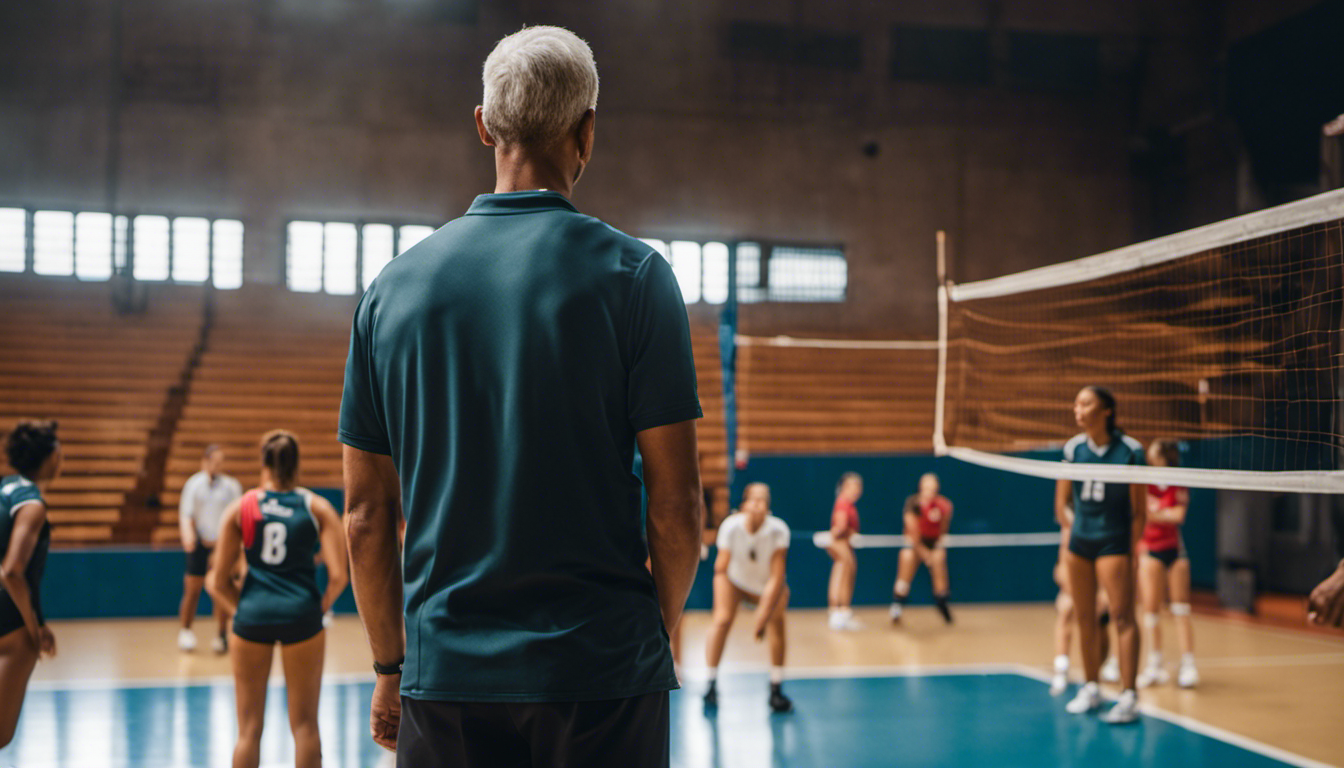
To be an effective coach, you need to understand and implement key principles that lay the foundation for successful coaching.
One of the most important aspects of coaching is developing a strong coaching philosophy. This philosophy serves as a guiding principle for your approach to coaching, defining your values, goals, and beliefs about the game and how it should be played. It helps you stay consistent in your decision-making and provides clarity to both yourself and your players.
Another crucial element of effective coaching is effective communication. Being able to clearly convey information, provide constructive feedback, and motivate your team is essential for building trust and fostering growth. By actively listening and using open-ended questions, you can create an environment where players feel comfortable expressing themselves and working together towards shared objectives.
Developing Essential Skills: Strategies for Improving Technique

Improve your technique by focusing on developing essential skills. As a seasoned volleyball coach, I’ve found that honing these skills through targeted drills and exercises is key to becoming a proficient player. Here are two strategies that can help you take your game to the next level:
-
Mastering Fundamentals:
-
Work on perfecting your passing and setting techniques by practicing repetitive drills.
-
Focus on footwork and body positioning to improve your hitting and blocking abilities.
-
Utilizing Video Analysis:
-
Record yourself during practice sessions or games to identify areas for improvement.
-
Analyze the footage with a critical eye, paying attention to form, timing, and decision-making.
By incorporating these strategies into your training routine, you’ll strengthen your foundation and enhance your overall performance.
Tactical Approaches: Game Plans and Strategies for Success

When developing your game plan, remember to consider strategic approaches that can lead to success on the volleyball court. Game analysis and match preparation are crucial aspects of creating an effective strategy. As a knowledgeable and experienced coach, I have found that analyzing both our team’s strengths and weaknesses, as well as studying our opponents’ tendencies, can provide valuable insights for developing a winning game plan.
To further emphasize this point, let’s take a look at the following table:
| Approach | Description | Benefit |
|---|---|---|
| Serve | Target specific areas or players during serves | Disrupt opponent’s offense |
| Defense | Implement different defensive formations based on opponent’s hitters | Limit their attacking options |
| Offense | Utilize various offensive tactics such as quick sets or combination plays | Keep opponents guessing |
Building Strong Team Dynamics: Fostering Communication and Unity
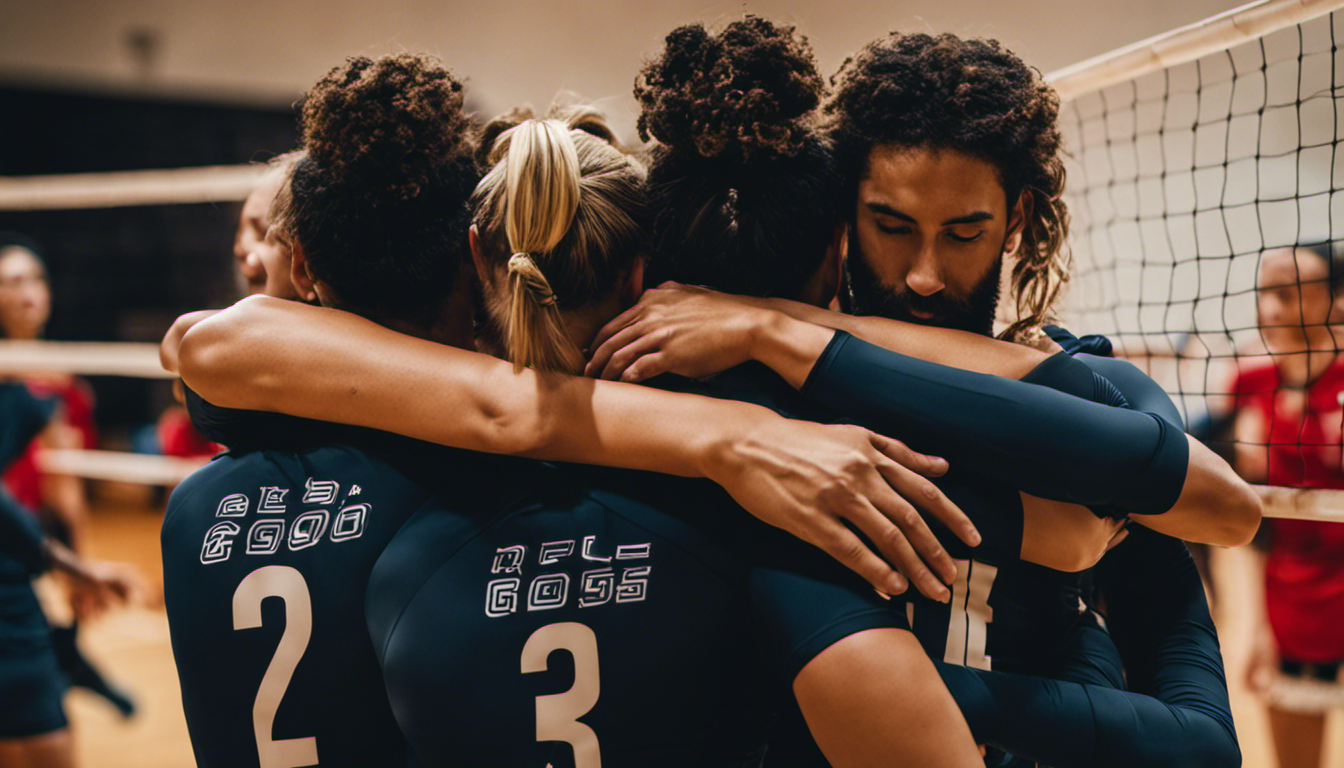
Developing strong team dynamics is crucial for success on the volleyball court. As a coach, I’ve found that fostering open communication and unity among players is essential. Here are some strategies I’ve found helpful in building strong team dynamics:
- Encourage regular team activities outside of practice to promote camaraderie.
- Organize team-building exercises like scavenger hunts or escape rooms.
- Plan social events such as movie nights or team dinners.
Implementing conflict resolution techniques is also important in maintaining strong team dynamics. Address any issues that may arise by encouraging open dialogue and active listening during team meetings. As a coach, it’s important to mediate conflicts and facilitate compromise when necessary.
Mental Training: Unlocking the Power of the Mind in Volleyball
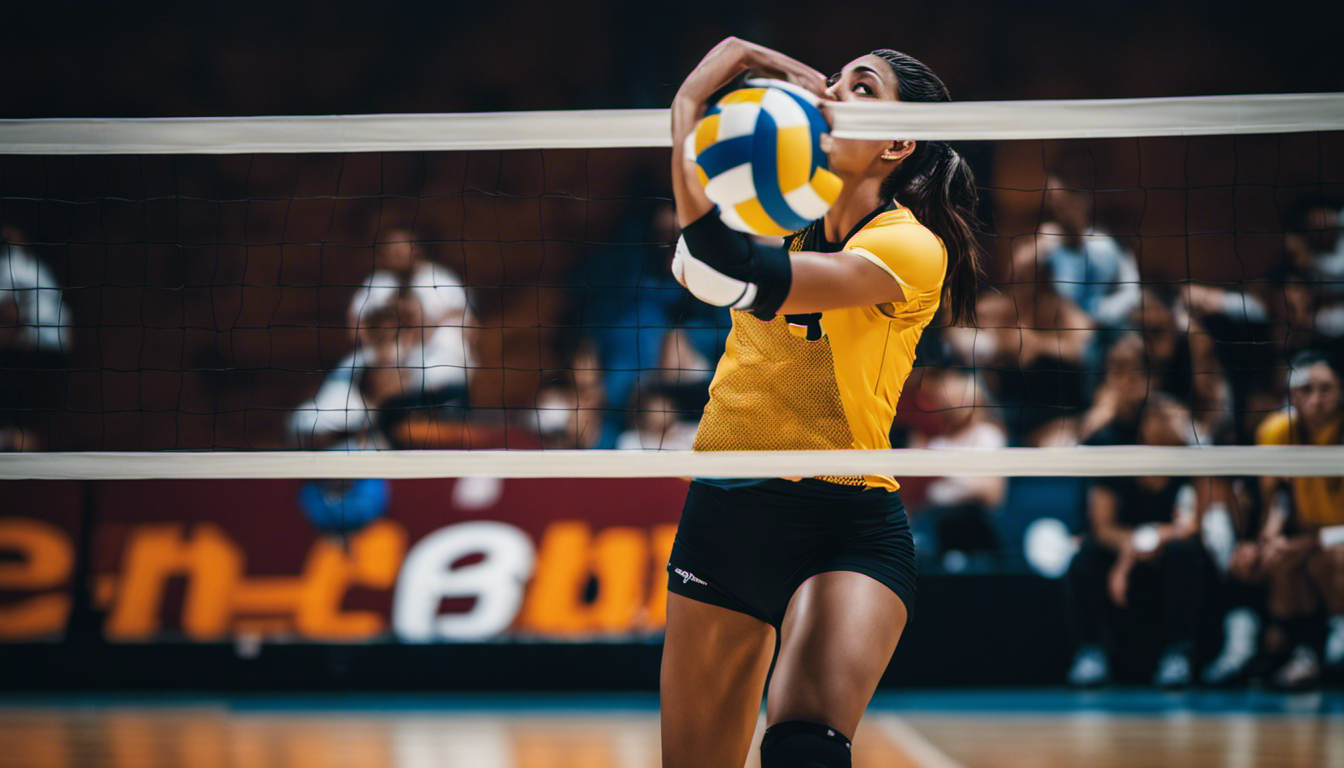
Unlock the power of your mind in volleyball by incorporating mental training techniques into your practice routine. As a seasoned player, I can attest to the significant impact these techniques have on enhancing performance and maintaining focus on the court.
Visualization involves mentally rehearsing specific plays or scenarios, allowing you to anticipate movements and make split-second decisions with ease. By visualizing success, you build confidence and train your brain to react effectively in real-time situations.
Positive self-talk is another powerful tool that helps you stay focused and motivated during intense moments. Reminding yourself of your strengths and capabilities boosts self-belief and keeps negative thoughts at bay.
Incorporating these visualization techniques and positive self-talk into your training sessions will undoubtedly elevate your game by harnessing the full potential of your mind.
Handling Challenges: Overcoming Obstacles and Adversity
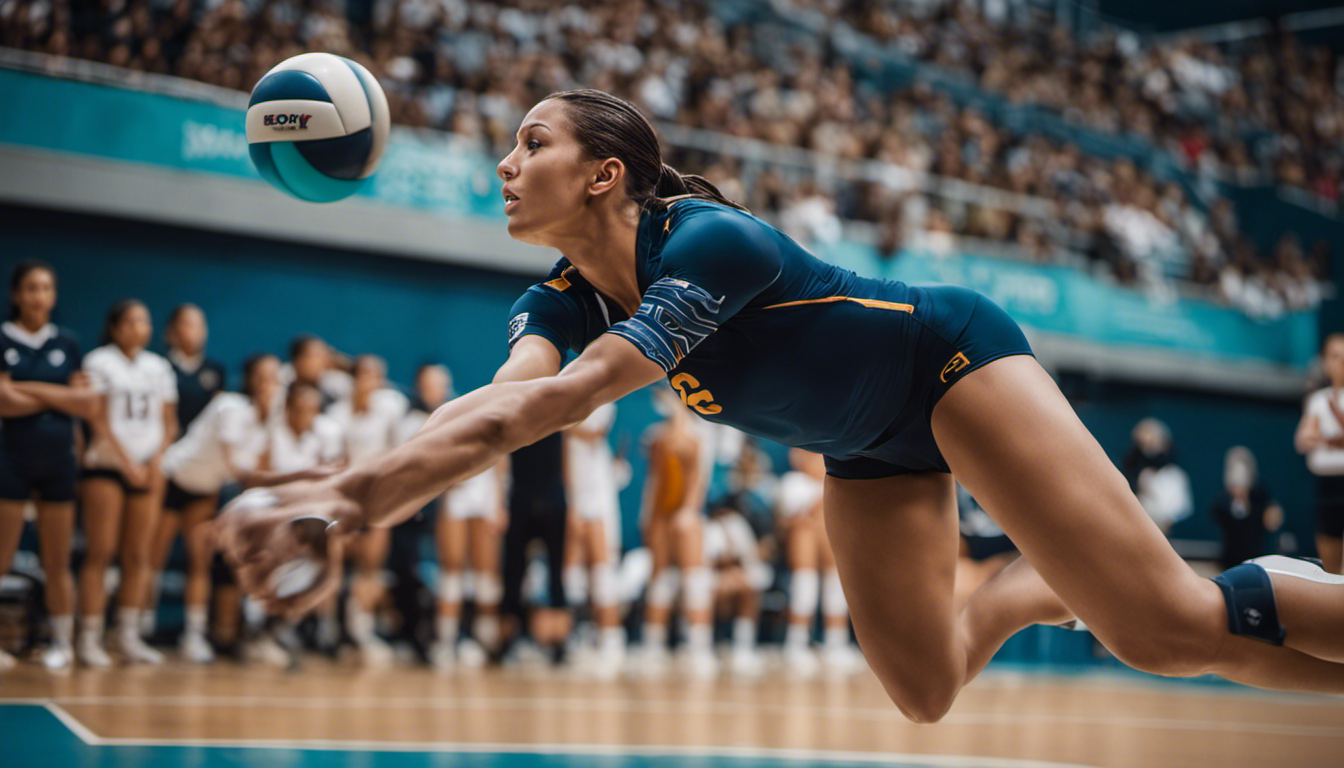
Overcoming obstacles and adversity in volleyball can be challenging, but with the right mindset and mental toughness, you can rise above them and reach new levels of success.
As a volleyball player, I have faced my fair share of challenges on the court. However, I have learned that resilience is key to overcoming adversity.
Here are some strategies that have helped me navigate through difficult times:
-
Develop a growth mindset:
-
Embrace failure as an opportunity for growth.
-
View setbacks as temporary and solvable.
-
Cultivate mental toughness:
-
Focus on what you can control rather than dwelling on things outside your control.
-
Use positive self-talk to stay motivated and confident.
Growing as a Coach: Continuing Education and Self-Improvement
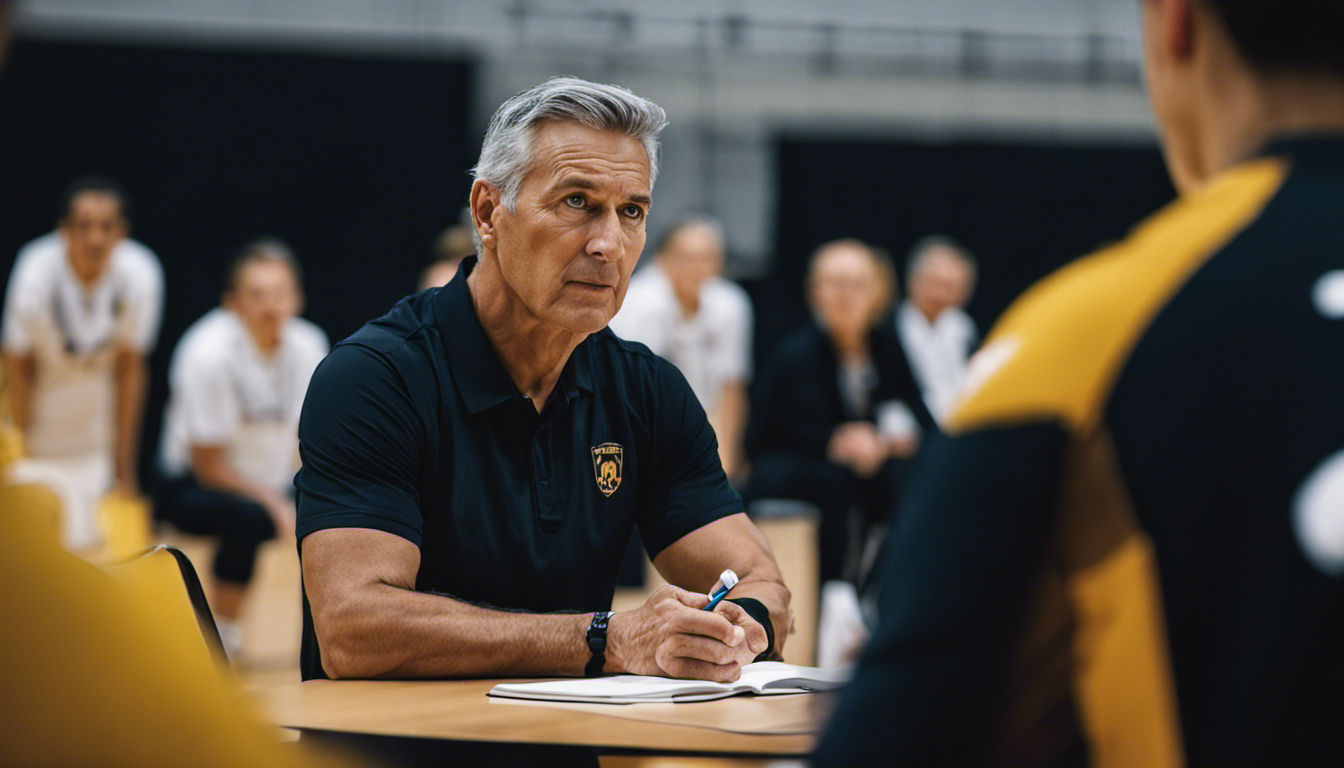
After successfully navigating the challenges of overcoming obstacles and adversity, I realized that my growth as a coach does not stop there. To truly excel in this profession, it is essential to prioritize continuing education and self-improvement.
Continuing education allows us to stay up-to-date with the latest coaching techniques and strategies. By attending workshops, conferences, and online courses, we can gain valuable insights from experienced mentors and learn from their successes and failures.
Additionally, seeking out opportunities for self-improvement helps us enhance our leadership skills, communication abilities, and overall coaching effectiveness. This can be achieved through reading books on coaching philosophy, attending personal development seminars, or even engaging in reflective practices such as journaling.
Frequently Asked Questions
What Are Some Common Mistakes Coaches Make When Setting the Foundation for Effective Coaching?
Common mistakes coaches make when setting the foundation for effective coaching include neglecting the importance of communication. As a knowledgeable and experienced mentor, I understand the significance of clear and open lines of communication to create a strong coaching framework.
How Can Coaches Help Players Overcome Mental Blocks and Improve Their Mental Game in Volleyball?
To help players overcome mental blocks and improve their mental game in volleyball, I focus on building their mental toughness and addressing performance anxiety. This involves providing them with strategies, support, and encouragement to develop a resilient mindset on the court.
What Are Some Effective Strategies for Handling Conflicts and Maintaining Strong Team Dynamics?
Conflict resolution and maintaining strong team dynamics are crucial in volleyball. As a coach, I’ve found that open communication, active listening, and fostering a supportive environment help resolve conflicts and promote team cohesion.
How Can Coaches Address and Overcome Challenges Related to Player Injuries and Setbacks?
As a coach, addressing and overcoming challenges related to player injuries and setbacks requires a multi-faceted approach. Providing player rehabilitation programs alongside necessary psychological support is crucial for their physical and mental well-being.
What Are Some Recommended Resources or Programs for Coaches to Continue Their Education and Self-Improvement in Volleyball Coaching?
There are many great resources and programs available for coaches to continue their education and self-improvement in volleyball coaching. These tools help us stay up-to-date on the latest strategies and techniques, ensuring we provide the best guidance to our players.
Conclusion
In conclusion, coaching volleyball is not just about teaching the sport, but also about nurturing athletes to become their best on and off the court.
By setting a strong foundation, focusing on skill development, implementing tactical approaches, building team dynamics, incorporating mental training, and overcoming challenges, coaches can guide their players towards success.
Remember that coaching is a continuous learning process, so always seek opportunities for growth and improvement.
With dedication and passion, you can make a positive impact on your players’ lives and help them reach their full potential in volleyball.
